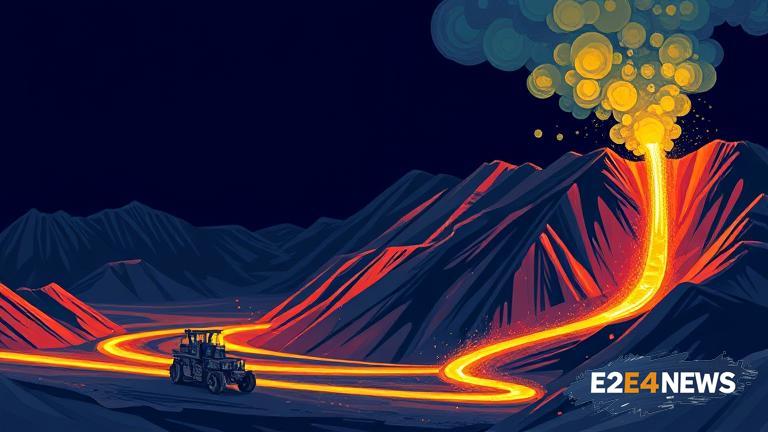The recent press release from Mining.com sheds light on the evolving landscape of lithium mining, an industry crucial for the production of batteries that power electric vehicles and renewable energy systems. Lithium, a soft, silvery-white alkali metal, is in high demand due to its high energy density and long cycle life, making it an ideal component for battery production. The press release discusses the challenges faced by traditional lithium mining methods, including environmental concerns and the need for more efficient extraction processes. In response to these challenges, companies are turning to innovative technologies such as lithium brine extraction and hard rock mining. Lithium brine extraction involves pumping brine from underground reservoirs and then processing it to extract lithium, a method that is considered more environmentally friendly compared to traditional hard rock mining. Hard rock mining, on the other hand, involves extracting lithium from spodumene, a mineral found in igneous rocks. This method requires crushing and processing the rocks to release the lithium, which can be energy-intensive and have higher environmental impacts. The press release also touches on the importance of sustainability in lithium mining, emphasizing the need for practices that minimize water usage, reduce waste, and promote recycling of lithium-ion batteries. Several companies are at the forefront of this movement, investing in research and development to improve the efficiency and sustainability of their operations. For instance, some are exploring the use of geothermal energy to power their mining activities, reducing their reliance on fossil fuels and lowering their carbon footprint. Others are implementing advanced water management systems to minimize water consumption and protect local ecosystems. The role of technology in enhancing lithium mining cannot be overstated. Advances in areas such as robotics, artificial intelligence, and data analytics are enabling more precise and efficient mining operations. For example, autonomous vehicles and drones are being used for site inspection and monitoring, reducing the risk of accidents and improving response times to potential issues. Furthermore, data analytics plays a crucial role in optimizing mining processes, from predicting ore quality to streamlining supply chain logistics. The press release concludes by highlighting the potential for lithium mining to contribute to a more sustainable future, provided that the industry adopts and integrates these emerging trends and technologies. As the world transitions towards cleaner energy sources and electric mobility, the demand for lithium is expected to continue growing. Therefore, it is imperative that lithium mining companies prioritize sustainability, efficiency, and innovation to meet this demand without compromising environmental integrity. The future of lithium mining looks promising, with ongoing research and development aimed at discovering new, more sustainable methods of extraction. Additionally, governments and regulatory bodies are beginning to play a more active role in ensuring that lithium mining operations adhere to strict environmental standards. This includes implementing policies that encourage the use of renewable energy in mining operations and promoting the recycling of lithium-ion batteries to reduce waste and conserve resources. In conclusion, the press release offers a comprehensive overview of the current state of lithium mining, emphasizing the need for innovation, sustainability, and responsible practices. As the industry continues to evolve, it is likely that we will see the emergence of new technologies and methods that further reduce the environmental impact of lithium mining, making it a more viable and sustainable component of our transition to a cleaner, more energy-efficient world.
